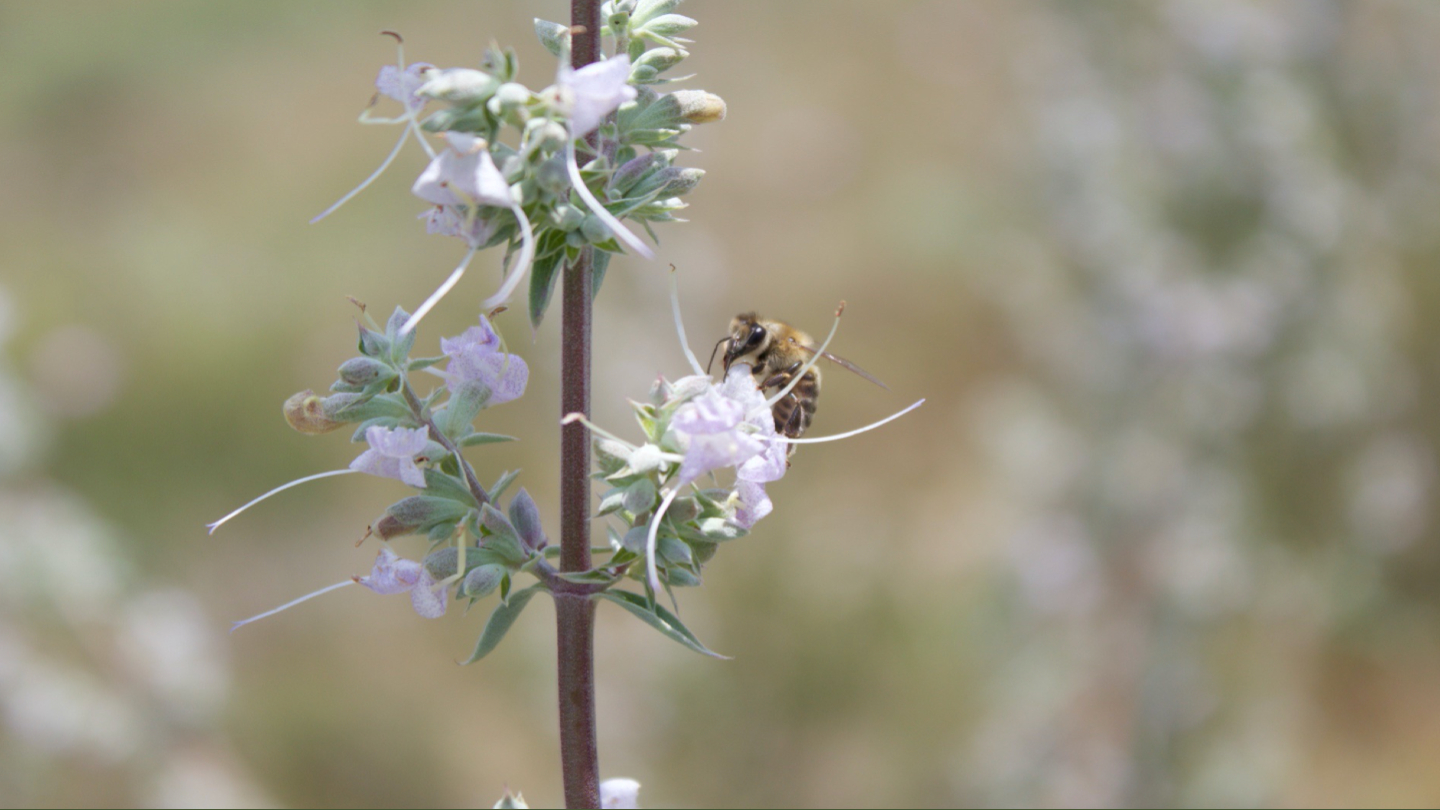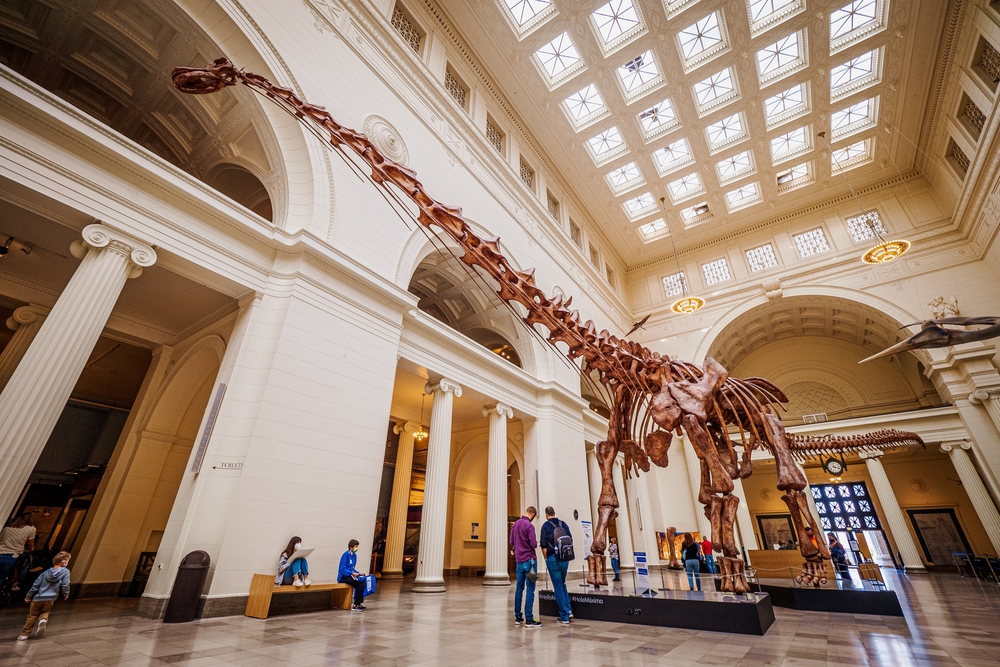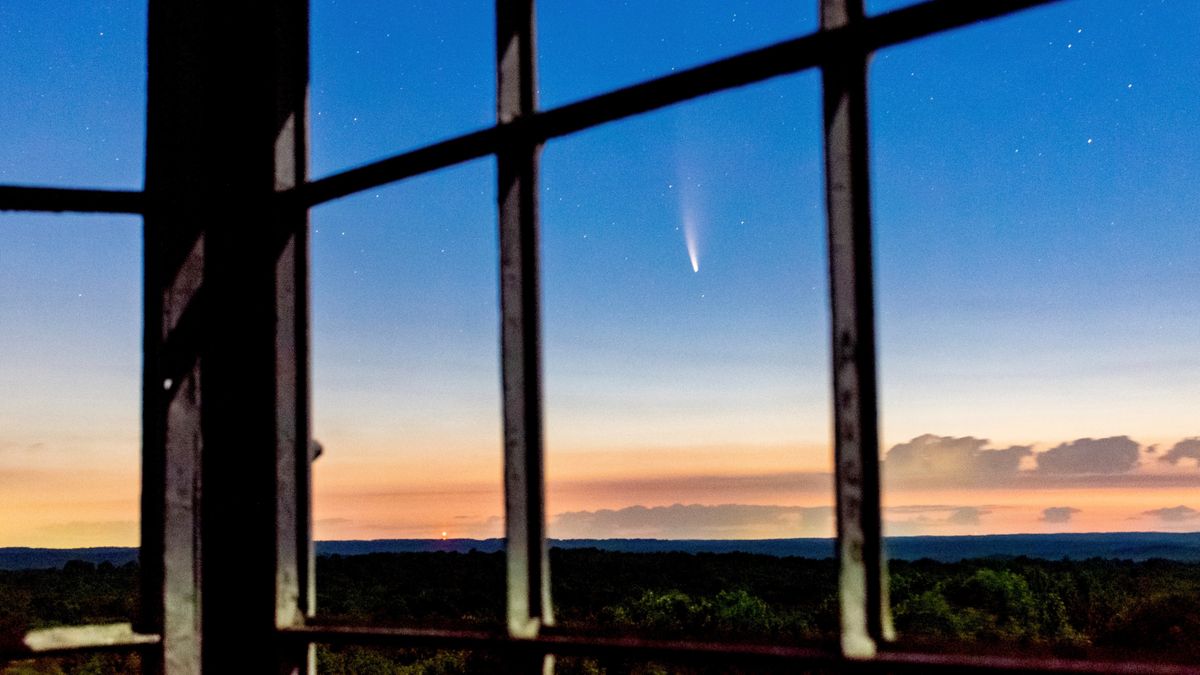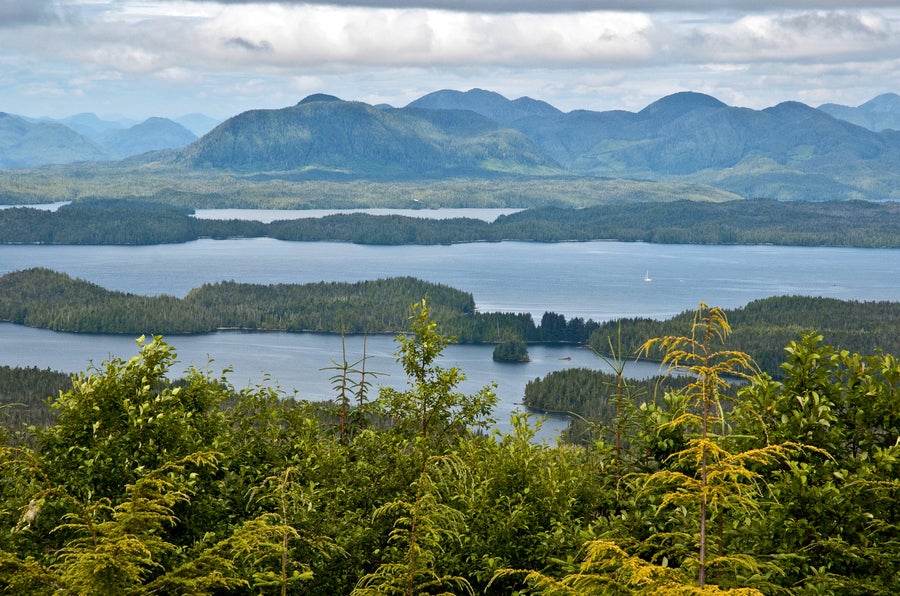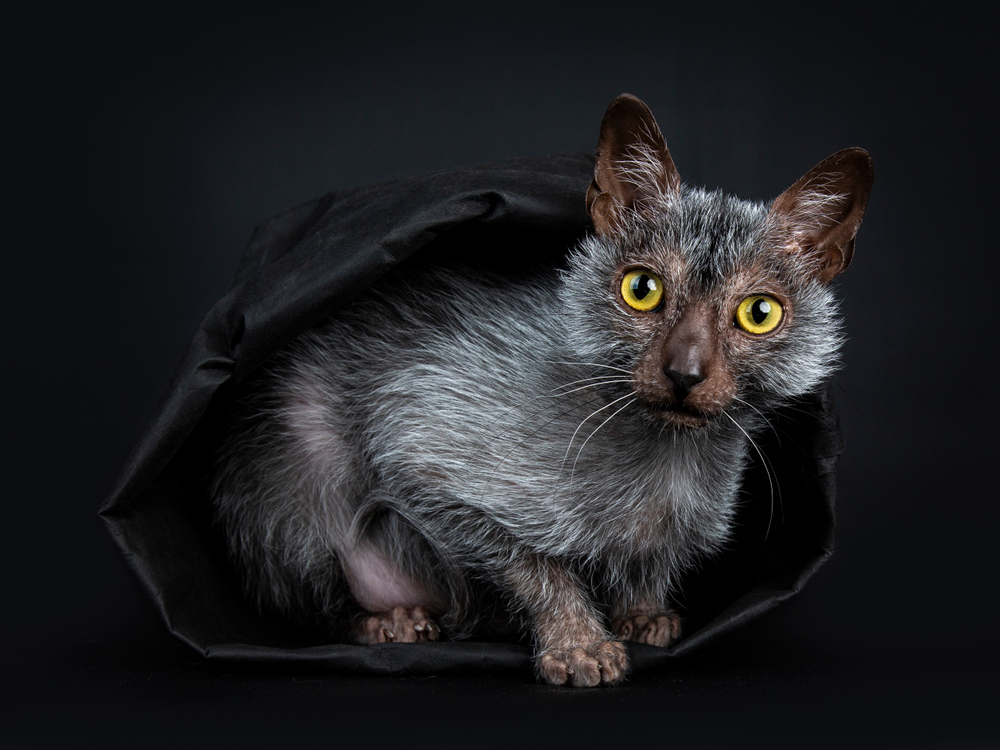A honeybee visits a white sage plant
Dillon Travis
Honeybees are no friends to some of the plants they visit. Native plants pollinated by non-native, wild honeybees produce offspring that are far less likely to survive and reproduce than those from plants pollinated by native pollinating insects.
Western honeybees (Apis mellifera) originated in Eurasia and Africa and were imported to North America in the 17th century. In some places, like San Diego county, California, they have established large, mostly feral populations that are wild and not used in beekeeping. There, they account for 75 per cent of all floral visitations among pollinators.
To investigate how the bees affect the reproduction of native plants, Dillon Travis and Joshua Kohn, both at the University of California, San Diego, compared the offspring of three kinds of plants – common phacelia (Phacelia distans), black sage (Salvia mellifera) and white sage (Salvia apiana) – that were pollinated by either honeybees or native pollinators.
The researchers bagged the plants’ flowers to block certain pollinators from accessing them. Later, the team cultivated the plants’ seeds, measuring the seedlings’ germination success and survival at 10 weeks and how many leaves (and eventually flowers) they had. This told the researchers about the quality of the plants’ offspring.
Offspring of plants that were pollinated by native pollinators were two to five times more evolutionarily fit – more likely to survive and reproduce – than those from honeybee-pollinated plants.
The team’s field observations revealed that honeybees visited multiple flowers on the same plant twice as often as other pollinators did. So, the bees could be forcing the plants to self-pollinate at higher rates, leading to inbred offspring.
San Diego county is a biodiversity hotspot, with more than 600 native bee species and 2400 plant species, but honeybees’ potential impact on this ecosystem is unclear, says Kohn.
“If native plant fitness is reduced, there’s more open space for invasives,” he says. Many of those invasive plants also encourage the spread of fire by filling the space between shrubs and drying out, becoming highly flammable tinder.
On the other hand, says Kohn, honeybees’ habit of targeting the most bountiful blooms may help some native plants.
“If those common, widespread, abundantly blooming things are now having lower fitness, it could mean that the rarer plants have an advantage,” explains Kohn. “So, it could protect diversity.”
The findings are “an important demonstration” that honeybees can negatively affect native plants, says Gretchen LeBuhn at San Francisco State University in California.
Clearly, honeybees are crucial for agriculture, she says, but the findings also highlight the need to carefully consider the impacts of both feral and managed honeybees.
Topics:




